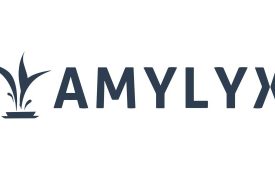
Pharmaceutical company Apellis has announced the discontinuation of the open-label phase of the MERIDIAN study (also called APL2-ALS-206 study). This decision was taken after review of the data by the data monitoring committee and the company’s medical team, which determined that the drug does not offer benefits for people with ALS.
All study participants completed the double-blind period of the study (in which they received either the study medication or placebo). Analysis of this data showed the drug to be ineffective. Therefore, the ongoing open-label phase of the study (in which all participants receive the study medication) has been terminated. The study has not been discontinued for safety reasons.
A total of 228 participants took part in the study worldwide. All study participants were personally informed about the discontinuation of the study. The termination of this study does not affect other ongoing drug trials.
Background
The MERIDIAN study investigated the drug Pegcetacoplan. It was thought that this drug could reduce nerve cell loss by suppressing part of the immune system, as the immune system is thought to be uncontrolled in people with ALS. This would contribute to the loss of nerve cells. Unfortunately, the drug does not have the expected effect.
Comment by TRICALS
 ‘’It is very disappointing that the drug has proved ineffective. Moreover, another study was also recently discontinued due to disappointing results. This is a double setback. After all, there is no time to waste to find an effective treatment for people with ALS. On a positive note, a new drug was recently approved in the United States for people with a SOD1 gene mutation. Several other studies are also currently being conducted on drugs targeting other gene mutations. We are hopeful that these drugs – which target specific gene mutations – will eventually provide a solution. Despite the disappointing result, we would like to thank everyone who participated in the study. Their participation was certainly not in vain, as the results of the study give us insights for follow-up research. In addition, we remain fully committed to the search for a treatment.’’ – Tommy Bunte, Physician Assistant and research coordinator University Medical Centre Utrecht
‘’It is very disappointing that the drug has proved ineffective. Moreover, another study was also recently discontinued due to disappointing results. This is a double setback. After all, there is no time to waste to find an effective treatment for people with ALS. On a positive note, a new drug was recently approved in the United States for people with a SOD1 gene mutation. Several other studies are also currently being conducted on drugs targeting other gene mutations. We are hopeful that these drugs – which target specific gene mutations – will eventually provide a solution. Despite the disappointing result, we would like to thank everyone who participated in the study. Their participation was certainly not in vain, as the results of the study give us insights for follow-up research. In addition, we remain fully committed to the search for a treatment.’’ – Tommy Bunte, Physician Assistant and research coordinator University Medical Centre Utrecht
Participate in drug research
To find a treatment for ALS, it is important that as many people as possible participate in research. Several drug trials are currently looking for participants. Would you like to participate in drug research and be informed when new studies start? Register yourself with TRICALS in our patient register.
TRICALS registrationRelaterade nyheter

European Commission approves Tofersen as treatment for ALS-SOD1

Amylyx terminates open-label extension of the PHOENIX study

Meet the centre - Torino ALS Center (University of Torino)
